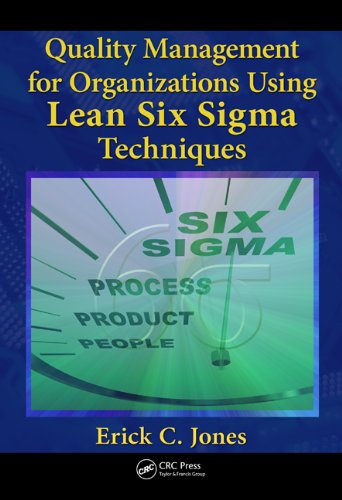

Most ebook files are in PDF format, so you can easily read them using various software such as Foxit Reader or directly on the Google Chrome browser.
Some ebook files are released by publishers in other formats such as .awz, .mobi, .epub, .fb2, etc. You may need to install specific software to read these formats on mobile/PC, such as Calibre.
Please read the tutorial at this link: https://ebookbell.com/faq
We offer FREE conversion to the popular formats you request; however, this may take some time. Therefore, right after payment, please email us, and we will try to provide the service as quickly as possible.
For some exceptional file formats or broken links (if any), please refrain from opening any disputes. Instead, email us first, and we will try to assist within a maximum of 6 hours.
EbookBell Team

5.0
50 reviewsThe next step in the evolution of the organizational quality field, Lean Six Sigma (LSS) has come of age. However, many challenges to using LSS in lieu of, in conjunction with, or integrated with other quality initiatives remain. An update on the current focus of quality management, Quality Management for Organizations Using Lean Six Sigma Techniques covers the concepts and principles of Lean Six Sigma and its origins in quality, total quality management (TQM), and statistical process control (SPC), and then explores how it can be integrated into manufacturing, logistics, and healthcare operations.
The book presents the background on quality and Lean Six Sigma (LSS) techniques and tools, previous history of LSS in manufacturing, and current applications of LSS in operations such as logistics and healthcare. It provides a decision model for choosing whether to use LSS or other quality initiatives, which projects should be selected and prioritized, and what to do with non-LSS projects. The author also details an integration model for integrating and developing integrated LSS and other quality initiatives, and common mathematical techniques that you can use for performing LSS statistical calculations. He describes methods to attain the different Six Sigma certifications, and closes with discussion of future directions of Lean Six Sigma and quality.
Case studies illustrate the integration of LSS principles into other quality initiatives, highlighting best practices as well as successful and failed integrations. This guide gives you a balanced description of the good, bad, and ugly in integrating LSS into modern operations, giving you the understanding necessary to immediately apply the concepts to your quality processes.